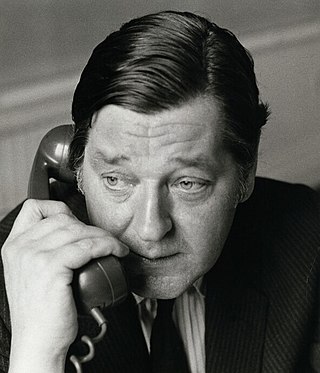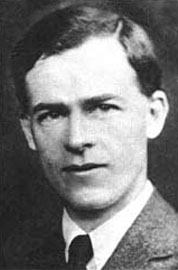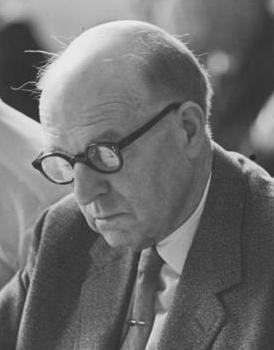Related Research Articles

Eric Arthur Blair was a British novelist, poet, essayist, journalist, and critic who wrote under the pen name of George Orwell, a name inspired by his favourite place, the River Orwell. His work is characterised by lucid prose, social criticism, opposition to all totalitarianism, and support of democratic socialism.
Libertarian socialism is an anti-authoritarian and anti-capitalist political current that emphasises self-governance and workers' self-management. It is contrasted from other forms of socialism by its rejection of state ownership and from other forms of libertarianism by its rejection of private property. Broadly defined, it includes schools of both anarchism and Marxism, as well as other tendencies that oppose the state and capitalism.

Roy Harris Jenkins, Baron Jenkins of Hillhead, was a British politician and writer who served as the sixth President of the European Commission from 1977 to 1981. At various times a Member of Parliament (MP) for the Labour Party and the Social Democratic Party (SDP), and a peer for the Liberal Democrats, he was Chancellor of the Exchequer and Home Secretary under the Wilson and Callaghan Governments.

Sir Winston Leonard Spencer Churchill was a British statesman, military officer, and writer who was Prime Minister of the United Kingdom from 1940 to 1945 and again from 1951 to 1955. Apart from 1922 to 1924, he was a member of Parliament (MP) from 1900 to 1964 and represented a total of five constituencies. Ideologically an adherent to economic liberalism and imperialism, he was for most of his career a member of the Conservative Party, which he led from 1940 to 1955. He was a member of the Liberal Party from 1904 to 1924.

James Ramsay MacDonald was a British statesman and politician who was Prime Minister of the United Kingdom, the first who belonged to the Labour Party, leading minority Labour governments for nine months in 1924 and again between 1929 and 1931. From 1931 to 1935, he headed a National Government dominated by the Conservative Party and supported by only a few Labour members. MacDonald was expelled from the Labour Party as a result.

Herbert Henry Asquith, 1st Earl of Oxford and Asquith, generally known as H. H. Asquith, was a British statesman and liberal politician who was Prime Minister of the United Kingdom from 1908 to 1916. He was the last Liberal Party prime minister to command a majority government, and the most recent Liberal to have served as Leader of the Opposition. He played a major role in the design and passage of major liberal legislation and a reduction of the power of the House of Lords. In August 1914, Asquith took Great Britain and the British Empire into the First World War. During 1915, his government was vigorously attacked for a shortage of munitions and the failure of the Gallipoli Campaign. He formed a coalition government with other parties but failed to satisfy critics, was forced to resign in December 1916 and never regained power.

John Allsebrook Simon, 1st Viscount Simon, was a British politician who held senior Cabinet posts from the beginning of the First World War to the end of the Second World War. He is one of three people to have served as Home Secretary, Foreign Secretary and Chancellor of the Exchequer, the others being Rab Butler and James Callaghan.

Charles Anthony Raven Crosland was a British Labour Party politician and author. A social democrat on the right wing of the Labour Party, he was a prominent socialist intellectual. His influential book The Future of Socialism (1956) argued against many Marxist notions and the traditional Labour Party doctrine that expanding public ownership was essential to make socialism work, arguing instead for prioritising the end of poverty and improving public services. He offered positive alternatives to both the right wing and left wing of the Labour Party.

George Douglas Howard Cole was an English political theorist, economist, historian, and novelist. As a believer in common ownership of the means of production, he theorised guild socialism. He belonged to the Fabian Society and was an advocate for the co-operative movement.
The Left Book Club is a publishing group that exerted a strong left-wing influence in Great Britain, during its initial run, from 1936 to 1948. It was relaunched in 2015 by Jan Woolf and Neil Faulkner, in collaboration with Pluto Press.
Oxford University Labour Club (OULC), was founded in 1919 to promote democratic socialism and is today the home of the Labour Party and of social democracy at Oxford University. The club caters for any students who are interested in the ideals of the labour movement whether members of the Labour Party or entirely new to politics. Stewart Wood, special adviser to consecutive Labour Party leaders Gordon Brown and Ed Miliband, said that 'OULC is held up as an exemplar of what needs to be done.' During his visit to Oxford in July 2009 the Prime Minister Gordon Brown was reported as having praised OULC's 'brilliant contribution to progressive politics in the University, the city and the country.' The club was instrumental in returning Andrew Smith to Parliament for Oxford East at the 2010 General Election with a 4.1% swing to Labour, the largest in England outside London.
Basil Kingsley Martin usually known as Kingsley Martin, was a British journalist who edited the left-leaning political magazine the New Statesman from 1930 to 1960.
David Ian MarquandFLSW was a British academic and Labour Party Member of Parliament (MP).
Mark Plowman, generally known as Max Plowman, was a British writer and pacifist.

Denis Nowell Pritt, QC was a British barrister and left-wing Labour Party politician. Born in Harlesden, Middlesex, he was educated at Winchester College and the University of London.
The New English Weekly was a leading British review of "Public Affairs, Literature and the Arts."

Harold Joseph Laski was an English political theorist and economist. He was active in politics and served as the chairman of the British Labour Party from 1945 to 1946 and was a professor at the London School of Economics from 1926 to 1950. He first promoted pluralism by emphasising the importance of local voluntary communities such as trade unions. After 1930, he began to emphasize the need for a workers' revolution, which he hinted might be violent. Laski's position angered Labour leaders who promised a nonviolent democratic transformation. Laski's position on democracy-threatening violence came under further attack from Prime Minister Winston Churchill in the 1945 UK general election, and the Labour Party had to disavow Laski, its own chairman.
NOW was a British political and literary periodical founded in 1940 by George Woodcock, its first editor, from 1940 to 1941, and by Freedom Press from 1943 to 1947.

The Social Democratic Party (SDP) was a centrist to centre-left political party in the United Kingdom. The party supported a mixed economy, electoral reform, European integration and a decentralised state while rejecting the possibility of trade unions being overly influential within industrial relations. The SDP officially advocated social democracy, and unofficially for social liberalism as well.

The United Kingdom home front during World War II covers the political, social and economic history during 1939–1945.
References
- 1 2 Harrison, Brian (1991). "Oxford and the Labour Movement". Twentieth Century British History. 2 (3): 226–271. doi:10.1093/tcbh/2.3.226.
- ↑ Briggs, Asa (2004). "Bletchley". In Adonis, Andrew; Thomas, Keith (eds.). Roy Jenkins: A Retrospective. Oxford University Press. p. 24.
- ↑ Ludow, N. Piers (2016). "Roy Jenkins and the importance of top-level politics". In Dyson, Kenneth; Maes, Ivo (eds.). Architects of the Euro: Intellectuals in the Making of European Monetary Union. Oxford University Press. pp. 117–137.
- ↑ Hilton, Matthew (2003). Consumerism in Twentieth-Century Britain. Cambridge University Press. p. 275.
- ↑ Rudy Goldsmith, Obituary: David Ginsburg, The Independent , 28 March 1994.
- ↑ Orwell, George (2000). A Patriot After All: 1940-1941. Secker. pp. 506–507. ISBN 978-0436205408.